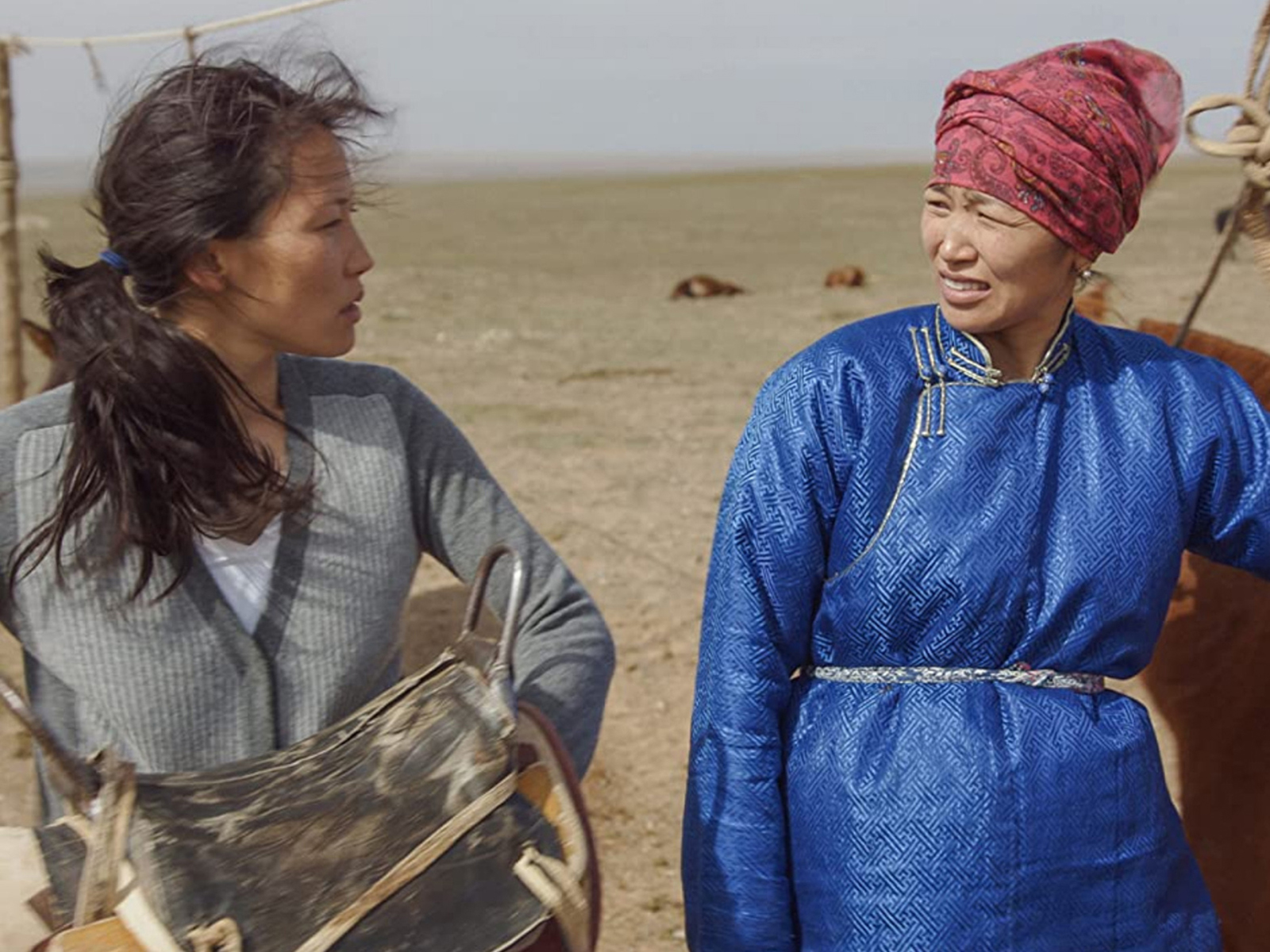
- Golden Globe Awards
Black Milk (Mongolia-Germany)
Black Milk is director-writer-actress Uisenma Borchu’s second film. Born in Mongolia in 1984, Borchu moved to Germany when she was four. Black Milk is a personal film of her life as she returns to Mongolia and her complex connection to her sister, who stayed behind. The film captured that feeling of not quite belonging anywhere. The sisters come from a family of nomads but now their worldview is different.
Uisenma Borchu plays the lead, Wessi, and her cousin Gunsmaa Tsogzol acts the part of Ossi, Wessi’s sister. Borchu says the idea of black milk is empowerment. “To me, everything that is black is something that you don’t see. You don’t recognize it.” She explains how power is something deep inside a person and for her, it is black.
Black Milk is a realistic movie about the life of nomad Mongolians. People lead simple lives herding their sheep and goats, riding horseback. The film shows their most intimate days and how they really live. Set among nomads living on the Mongolian plains, but seen through the eyes of a Westernized local woman, it tells an uninhibited story of two sisters personates defying cultural expectations and refusing to follow the traditional roles mapped out for women.
Black Milk is a very physical film that doesn’t shy away from shocking scenes, such as the slaughter of two goats by taking out the heart from the chest cavity. When wolves kill some sheep and leave their bodies to rot, Ossi is more distressed than her sister.
The most important animal of the Mongols is the horse: mare’s milk has a special status. Milk is an essential element in a nomadic existence. Wessi’s suggestion to her sister that she should bathe in milk seems a wasteful idea. Later, Wessi uses tainted breast milk as a curse on a man who has bad intentions.